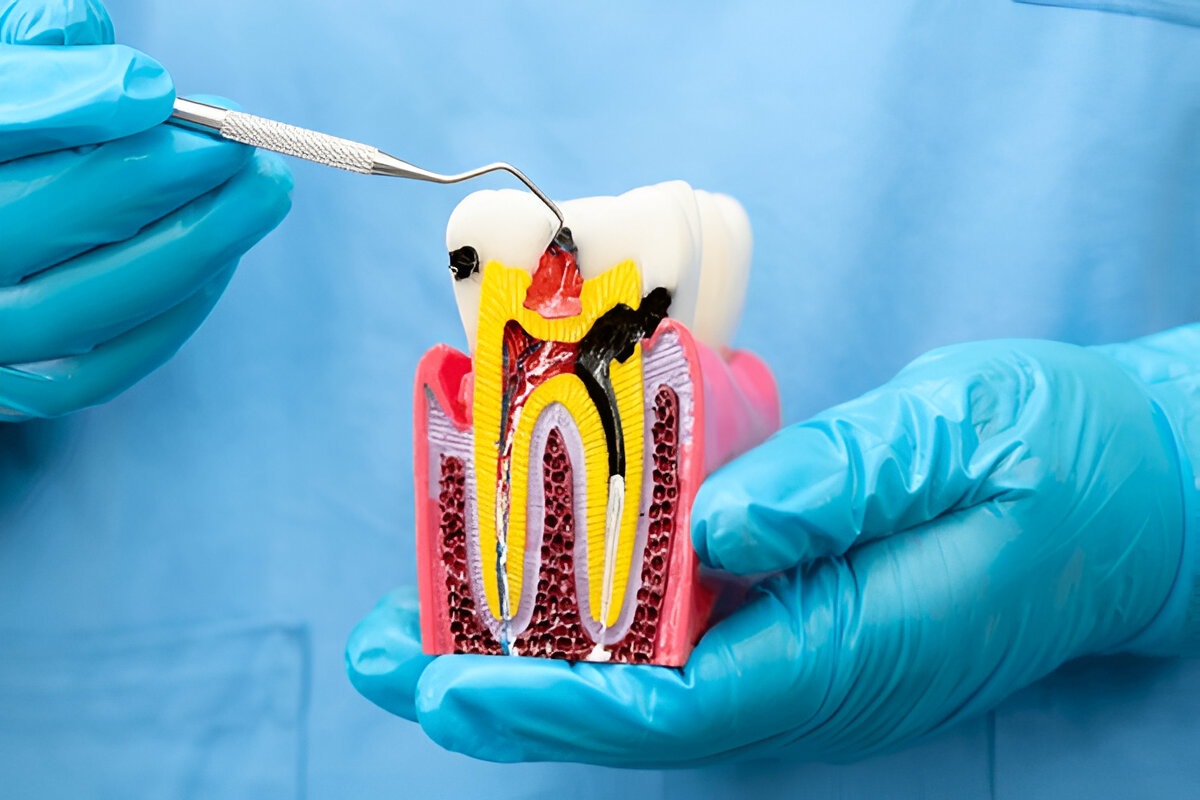Introduction
A Root Canal Treatment is often the last line of defense to save a tooth from extraction. This common dental procedure can transform your smile, alleviate pain, and preserve your natural teeth for many years. However, one of the most frequent questions patients ask is, “How long does a root canal last?”
Understanding the longevity of a root canal and how to maintain it is crucial for anyone considering this procedure. Whether you’re exploring cosmetic dentistry options or seeking the Best Root Canal Treatment in Abu Dhabi, this guide covers everything you need to know — with clear insights and maintenance tips to help you protect your investment for decades.
Understanding Root Canal Treatment
Before diving into lifespan details, it’s important to grasp what Root Canal Treatment actually involves.
A root canal is a dental procedure that removes infected or inflamed pulp from inside the tooth. Once the pulp is removed, the space is thoroughly cleaned, disinfected, filled, and sealed. This treatment saves the tooth structure, preventing the need for extraction and preserving your natural smile.
Many people associate root canals with pain, but in reality, modern techniques — especially at the Best Dental Clinic in Abu Dhabi — make the process highly comfortable and efficient.
How Long Does a Root Canal Last on Average?
Studies show that Root Canal Treatments are remarkably successful when performed properly. According to the American Association of Endodontists (AAE):
- Root canals have a success rate of up to 95%.
- Approximately 85%–90% of treated teeth can last 10–15 years or longer.
- With excellent aftercare, some root canals can last a lifetime.
Compared to alternatives like dental implants, preserving your natural tooth through a root canal is not only cost-effective but also healthier for your jawbone and overall dental health.
Factors That Influence the Longevity of a Root Canal
Several key factors can determine whether your root canal will last a decade—or a lifetime.
A. Location of the Tooth
The type of tooth matters:
- Front teeth typically have a single root, making them easier to treat. They often last longer.
- Molars have multiple roots, which increases treatment complexity and slightly lowers long-term success rates.
B. Quality of the Root Canal Procedure
The expertise of the dentist significantly affects the outcome. Treatment by a skilled Endodontist Abu Dhabi using advanced technology can increase the chances of a successful, long-lasting result.
Proper cleaning, filling, and sealing are essential to prevent reinfection.
C. The Restoration After Root Canal
Placing a crown over a treated tooth greatly enhances its lifespan:
- Teeth with crowns after a root canal are 6x more likely to survive long-term than those without, according to a study published in the Journal of Dental Research.
- Crowns protect the tooth from fractures and bacteria.
D. Oral Hygiene Habits
Aftercare is crucial. Daily brushing, flossing, and regular dental check-ups ensure that treated teeth stay healthy and protected from decay.
E. Overall Health Conditions
Systemic diseases such as:
- Diabetes
- Osteoporosis
- Autoimmune disorders
can impact your body’s ability to heal and maintain dental treatments.
F. Habits Like Teeth Grinding
Bruxism (teeth grinding) can damage a root canal-treated tooth. In such cases, your dentist may recommend wearing a custom night guard.
Signs That a Root Canal May Be Failing
Though most root canals succeed, it’s vital to recognize signs of potential failure early:
- Persistent pain or pressure long after healing should have occurred.
- Swelling in the gums around the treated tooth.
- Dark discoloration of the tooth.
- Pimple-like abscesses or gum boils near the tooth.
- Increased sensitivity to hot, cold, or pressure.
If you notice any of these signs, consult an Endodontist Abu Dhabi immediately for evaluation.
What Happens If a Root Canal Fails?
Sometimes, despite best efforts, a Root Canal Treatment may fail due to hidden canals, complex anatomy, or reinfection. But failure isn’t the end of the road!
Options include:
- Root Canal Retreatment:
Re-cleaning and resealing the canals. - Apicoectomy:
A minor surgical procedure to remove the infected tissue at the tip of the tooth root. - Tooth Extraction and Replacement:
If retreatment or surgery isn’t possible, the tooth may need to be removed and replaced with an implant or bridge.
Prompt attention can often save the tooth without needing extraction.
Tips to Help Your Root Canal Last Longer
You play a critical role in the success of your root canal. Follow these expert tips:
- Maintain Excellent Oral Hygiene:
Brush twice daily with fluoride toothpaste and floss daily. - Complete the Treatment:
Always crown a treated tooth (especially molars) to protect it. - Regular Dental Visits:
Professional cleanings every 6 months help spot problems early. - Wear a Night Guard:
If you grind your teeth, a night guard will protect your restoration. - Avoid Hard Foods:
Stay away from ice, hard candies, and unpopped popcorn kernels. - Stop Smoking:
Smoking reduces healing ability and increases reinfection risk. - Eat a Tooth-Friendly Diet:
Incorporate calcium-rich foods like yogurt, cheese, leafy greens, and almonds.
Importance of Choosing the Right Dentist
Choosing the right dentist is critical to the long-term success of your root canal.
Here’s what to look for:
- Advanced Technology:
Digital X-rays, CBCT imaging, and dental microscopes enhance precision. - Specialized Expertise:
Certified endodontists specialize in complex root canal cases. - Reputation:
Look for clinics recognized for the Best Root Canal Treatment in Abu Dhabi based on patient reviews and clinical outcomes. - Comprehensive Care:
A team that offers restorative services (crowns, fillings) post-treatment ensures seamless care.
When you choose the Best Dental Clinic in Abu Dhabi, you invest not just in a procedure—but in long-lasting oral health.
Final Thoughts
A Root Canal Treatment is not just a quick fix—it’s a long-term investment in your dental health. With proper care, the treated tooth can last 10, 20, or even 30+ years!
Remember, factors like the quality of the initial procedure, your oral hygiene habits, and routine dental checkups play crucial roles in how long your treatment will last. If you’re considering or have already had a root canal, staying proactive is key.
For exceptional care, trust only the experts providing the Best Root Canal Treatment in Abu Dhabi. Your smile deserves nothing less than the very best!
FAQs
How do I know if my root canal is failing?
Signs include persistent pain, swelling, gum boils, discoloration, or new sensitivity. Regular checkups help detect issues early.
Can a root canal-treated tooth get infected again?
Yes, reinfection is possible due to cracked crowns, missed canals, or delayed restoration. Prompt treatment can save the tooth.
Is it normal to feel some pain after a root canal?
Mild discomfort for a few days is normal. Severe or prolonged pain could signal complications and needs professional attention.
How much does a root canal retreatment cost in Abu Dhabi?
Costs vary depending on the complexity of the case and whether an apicoectomy is needed. Consult an Endodontist Abu Dhabi for exact estimates.
How soon after a root canal should I get a crown?
Ideally, a crown should be placed within two weeks of completing the root canal to protect the tooth from fracture and contamination.
Summary at a Glance
| Topic | Key Points |
| Average Longevity | 10–20 years or more |
| Factors | Tooth location, dentist skill, crown placement, hygiene |
| Signs of Failure | Pain, swelling, discoloration, gum boils |
| Maintenance Tips | Oral hygiene, crowns, regular checkups, and night guards |
Connect with us to grow, learn, and share ideas.












